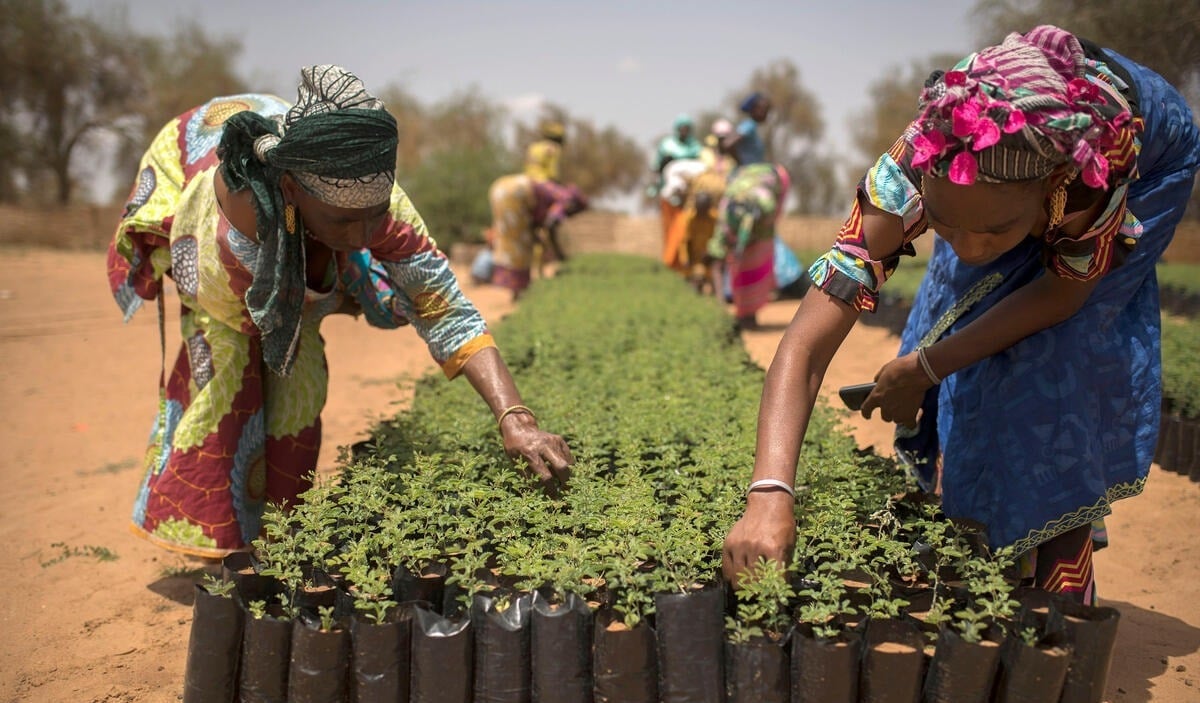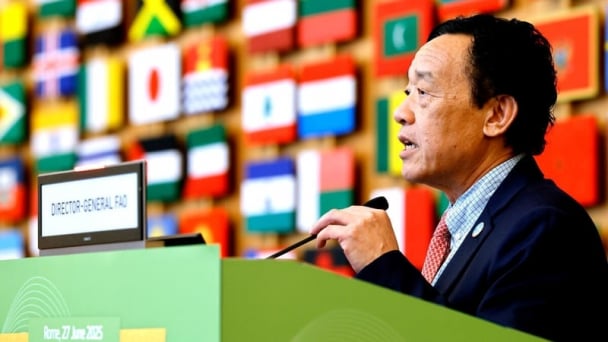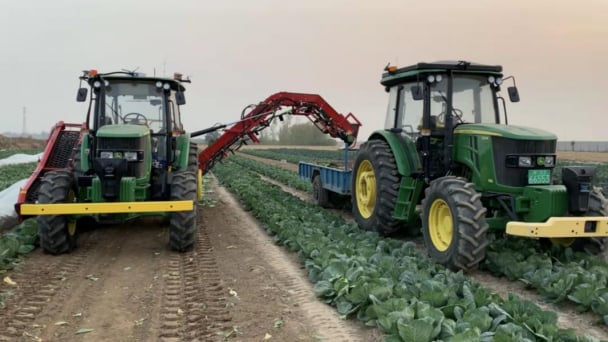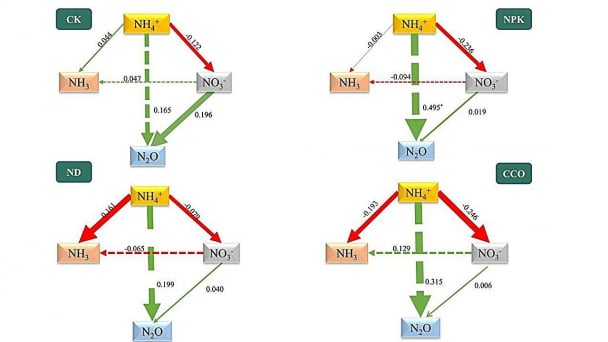July 3, 2025 | 09:58 GMT +7
July 3, 2025 | 09:58 GMT +7
Hotline: 0913.378.918
July 3, 2025 | 09:58 GMT +7
Hotline: 0913.378.918

The Scaling-Up Resilience in Africa’s Great Green Wall includes developing value chains for climate-resilient and low-emission non-timber forest products, supporting the livelihoods and food security of vulnerable communities.
The Green Climate Fund (GCF) has approved projects worth more than $300 million that will protect forests in Papua New Guinea, promote sustainable fisheries in Saint Lucia, and help grow Africa’s Great Green Wall.
The initiatives, designed by the Food and Agriculture Organization of the United Nations (FAO), were greenlighted at the 42nd meeting of the GCF Board, held in the Papua New Guinea capital from June 30 to July 3. It represents the highest-value batch of such approvals to date.
“Through sustainable forestry management, fisheries transformation and land restoration, these FAO-designed projects will make a significant difference to the lives and livelihood of these vulnerable communities, especially in the current global context of overlapping and complex crises due to climate extremes and other shocks,” said FAO Director-General QU Dongyu. “FAO appreciates the unwavering trust that the GCF and Member Countries place in FAO’s professional capacity to provide the required technical expertise to strengthen resilience and safeguard the livelihoods of the most vulnerable,” he added. “The FAO-GCF partnership continues to be critical for the climate investments in agrifood systems required to deliver science-based concrete solutions to countries and communities where they are needed most, leaving no one behind.”
All three approvals were outcomes of successful FAO-led GCF readiness projects, as well as other long-standing technical collaborations, which unlocked the resources countries needed to pursue more ambitious climate projects.
Papua New Guinea
FAO has supported the country to design a high-impact climate project, within the framework of GCF’s pilot programme for results-based payments, that will direct investments worth $63.4 million into Papua New Guinea’s sustainable forest management activities.
This substantial GCF investment recognizes the Government’s achievements in reducing greenhouse gas emissions by 17 million tonnes of carbon dioxide equivalent (tCO₂e) during the 2014-2016 period – comparable to taking over 3 million cars off the road for a year.
Funding for the project falls under the initiative known as REDD+ (Reducing Emissions from Deforestation and forest Degradation), and will support the Government’s efforts to conserve forests and implement the National REDD+ Strategy 2017–2027.
Papua New Guinea has been an advocate for the REDD+ global process since its very inception in 2008. The country has kept forest conservation and reducing emissions from the forest sector high on the national and global agenda including through support from FAO and the UN-REDD programme.
The investments seek to promote a virtuous cycle of emission reductions by promoting agroforestry, sustainable fuelwood and charcoal production, community pole and timber plantations, the restoration of natural forest, and more.
The project will place special emphasis on the social dimension, prompting benefit sharing, encouraging stakeholder engagement, and strengthening both local and national capacities.
Papua New Guinea’s tropical rainforests – of which three-quarters are primary forests – cover 78 percent of the country’s land, making it a global biodiversity hotspot. The forests are home to 191 species of mammals, and 750 species of bird. They also serve as vital carbon sinks, storing large amounts of carbon in above-ground biomass and soil.
Saint Lucia
The FISH-ADAPT project in Saint Lucia, with an investment of $16.7 million, has been designed to reduce the risks that climate change poses to the fishing and aquaculture sectors in this Small Island Developing State located in the eastern Caribbean Sea.
The project aims to transform Saint Lucia’s fisheries sector by making fishing safer and more productive despite a changing climate. It will foster a circular economy to help reduce waste, enhance resource efficiency, and promote livelihood diversification for more resilient communities. Fish value chains and markets will be strengthened; coastal fish grounds and aquaculture systems will become more climate resilient; and fishers will have more diversified incomes.
The initiative will put in place agrifood solutions that build sustainability and resilience to improve efficiency, safety and productivity in the fisheries sector. These include empowering fishers and aquaculture farmers by enhancing access to weather data, upgrading landing sites and promoting sustainable offshore fishing.
Saint Lucia’s geographic position and socio-economic dependence on the fisheries sector make it especially vulnerable to the impacts of climate change. Fisherfolk who rely on the sea for their livelihoods are finding it increasingly difficult to adapt to a changing climate and declining fish stocks. Increased air temperature and changing rainfall patterns have also been affecting inland aquaculture.
Considering these challenges, FISH-ADAPT will target approximately 75,000 beneficiaries – about 41 percent of the population – including marine fishers, sea-moss farmers, fish vendors and processors, and inland aquaculture farmers.
The Sahel
The Scaling-Up Resilience in Africa’s Great Green Wall (SURAGGWA), with an investment of $222 million, will support livelihoods of agropastoral and pastoral communities living in the Sahel’s semi-arid regions, who are extremely vulnerable to climate change.
The initiative is FAO’s first multi-country proposal and the largest funding request ever submitted on behalf of its Member Countries. It builds on the extensive work done by FAO on the Great Green Wall initiative, in particular the Action Against Desertification Programme.
The initiative will seek to scale up successful land restoration practices using a diversity of native species to increase livelihood resilience while also sequestering carbon. It will develop value chains for climate-resilient and low-emission non-timber forest products, supporting the livelihoods and food security of vulnerable communities.
Another key aspect of the project will be to strengthen national and regional Great Green Wall institutions to ensure the sustainability and coordination of interventions and monitoring of restoration results as well as mobilizing additional resources including through climate change adaptation and mitigation financing mechanisms.
The SURAGGWA Programme will advance the African Union’s ambitions to transform Sahelian landscapes by restoring 100 million hectares of degraded land and creating 10 million jobs. Working with smallholder farmers and pastoralist communities, it will also build resilience and contribute to climate change mitigation through carbon sequestration in restored lands across the eight participating countries (Burkina Faso, Chad, Djibouti, Mali, Mauritania, Niger, Nigeria and Senegal).
A quarter of the 100 million people who live in the Sahel rely on pastoralist livelihoods. Poverty, social tensions, and climate change put additional strain on herders and farmers who already compete for limited resources and land. Agriculture, livestock and forestry activities are the foundation of their economies and more than 70 per cent of rural communities depend directly on rainfed agriculture.
The FAO–GCF partnership
The new approvals raise FAO’s GCF portfolio to over $1.8 billion, with climate investments delivering sustainable agrifood system solutions to the countries and communities where they are needed most.
(FAO)

(VAN) Director-General QU Dongyu addresses the 6th AU-EU Agriculture Ministerial Conference.

(VAN) In the suburbs of Beijing, there is an agricultural center spanning over 150 hectares dedicated to research, demonstration, and application of high-tech and precision agriculture.

(VAN) Researchers from the Institute of Applied Ecology of the Chinese Academy of Sciences have developed a new environmentally friendly fertilizer additive that significantly enhances crop yields while reducing emissions of harmful gases.

(VAN) Poultry production in Poland, which has only started recovering from devastating bird flu outbreaks earlier this year, has been hit by a series of outbreaks of Newcastle disease, with the veterinary situation deteriorating rapidly.

(VAN) Extensive licensing requirements raise concerns about intellectual property theft.

(VAN) As of Friday, a salmonella outbreak linked to a California egg producer had sickened at least 79 people. Of the infected people, 21 hospitalizations were reported, U.S. health officials said.